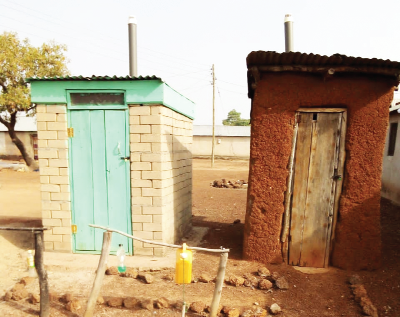
Takuka’s feat exemplary
Takuka, a small community in the West Mamprusi municipality in the North East Region, is in the limelight because it has been able to put structures in place to ensure environmental cleanliness.
This has culminated in the community, in July 2021, being adjudged the cleanest in Ghana by Global Communities, an international non-governmental organisation, after it had attained Open Defecation Free (ODF) Sanitised status.
For us at the Daily Graphic, that achievement gives us a glimmer of hope that Ghana’s quest to become the cleanest country in Africa is not only achievable but also workable.
This is because we have the community of Takuka as a worthy example to follow. It can become a manual for every community in the country to learn from if we are to attain the level of cleanliness we aspire to as a people.
Although in 2015 Takuka struggled with poor sanitation and open defecation, with children often falling ill, this is no longer the case, as the community has remedied the situation, employing the community-led total sanitation (CLTS) programme, a behavioural change approach which is used to educate and help communities eliminate open defecation globally.
Under the programme, Takuka residents were sensitised to how to observe basic sanitation practices, as well as use basic but durable materials to construct toilet facilities in their homes.
Although it was difficult for the community members to adapt to the approach, education on the health implications of open defecation enabled them to collectively embrace it.
We believe that the same approach can be adopted when it comes to managing solid waste in our urban communities — sensitisation is key to changing the narrative of overflowing refuse, and our city authorities must take charge.
Through the CLTS intervention, Takuka did not only become the first community in the West Mamprusi municipality to be certified as ODF in 2016; it went on to become ODF sanitised in July 2021.
This is the status beyond ODF, as every household and place of public gathering has a latrine with a hand-washing facility, while animals are all kept in pens, with no droppings littered around and food and water properly stored.
This is a far cry from what pertains in many urban centres where not every household has a latrine, not to talk about public places, while waste receptacles are also sparse, and where they are provided, they are mostly seen overflowing, with flies and other insects hovering around in unsightly scenes.
Cattle and other ruminants are also seen roaming the streets, with the authorities looking on helplessly.
Takuka has instituted a by-law against open defecation, although the inability to gazette the by-law makes prosecution difficult. The community needs the buy-in of the municipal assembly to do that.
The people have, however, made up for that deficiency by holding one another in check to ensure a clean community at all times.
With the provision of potable water in 2018, through the support of USAID, and the provision of electricity and an improved road network, Takuka has become a model community, from which all others can learn the discipline of cleanliness.
As Takuka has shown, the health benefits are enormous, as sanitation-related diseases, such as cholera and malaria, have reduced significantly.
Also, setting aside certain days to clean the environment, as has been done by the chiefs of the community, to ensure a sustained sanitised environment and sanctioning anybody who fails to show up have proved effective and all other communities can take a cue from that.
Indeed, as explained by the North East Regional Environmental and Sanitation Director, Mr Osman Alabira, in the Daily Graphic story on Takuka, carried in the January 8, 2022 edition, it took a lot of communal effort and resolve to achieve the status of a sanitised community.
There is the need for comprehensive regional sanitation plans to tackle the sanitation situation in the regions. We also need the will to become and stay clean at all times. It is a choice we must make deliberately.
The feat by Takuka shows that with collective effort and commitment from all, Ghana can achieve the Sustainable Development Goal (SDG) Six, which seeks to ensure the availability and sustainable management of water and sanitation for all by 2030.
